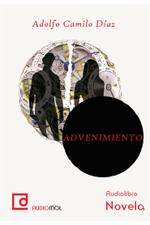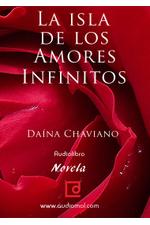Blog del Instituto Cervantes de Dublín
Torre Martello
Autor del mes | Author of the month: Gerardo Diego
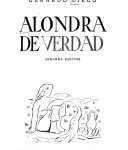 Este mes se cumplen veinticinco años de la muerte del poeta y escritor español Gerardo Diego y desde la biblioteca queremos rendirle un pequeño homenaje acercándonos a su obra de la que os recordamos tenemos una selección a vuestra disposición.
Este mes se cumplen veinticinco años de la muerte del poeta y escritor español Gerardo Diego y desde la biblioteca queremos rendirle un pequeño homenaje acercándonos a su obra de la que os recordamos tenemos una selección a vuestra disposición.
Fue miembro destacado de la Generación del 27, reuniendo el trabajo de sus miembros en una célebre antología y encabezó el redescubrimiento de Góngora. Representó el ideal del 27 al alternar con maestría poesía tradicional y vanguardista, de la que se convirtió en uno de los máximos exponentes durante la década de los años veinte. Su obra poética siguió principalmente estas dos líneas.
Gran parte de la crítica literaria considera su soneto El ciprés de Silos el mejor de la literatura española. Otros de sus poemas más célebres son Nocturno, Las tres hermanas o La despedida. En 1947 ingresó en la Real Academia Española. Entre otros galardones, recibió el Premio Nacional de Literatura (1925), compartido con Rafael Alberti, y en 1980 el Cervantes, que compartió con Jorge Luis Borges.
Su muerte, el 8 de julio de l987, cierra una dilatada dedicación a las letras, caracterizada por su versatilidad: poeta, profesor, crítico literario y musical, estudioso de la pintura, aficionado y estudioso del mundo taurino, ocasional dramaturgo, comentarista de actualidad en la prensa, lector constante y hasta pianista consumado.
Os dejamos con algunos de sus hermosos versos:
Una a una desmonté las piezas de tu alma.
Vi cómo era por dentro:
sus suaves coyunturas,
la resistencia esbelta de sus trazos.
Te aprendí palmo a palmo.
Pero perdí el secreto
de componerte.
Sé de tu alma menos que tú misma,
y el juguete difícil
es ya insoluble enigma.
This month is the 25th anniversary of the death of Spanish poet and writer Gerardo Diego and we want to pay him a little tribute taking a close look to his work. We also want to remind you that we have a selection of his books at the library.
He was a distinguished member of the Generation of 27 and he made a compilation of their work in a celebrated anthology. He also led the rediscovery of Góngora. He symbolized the ideal of the 27 as he accomplished the combination of traditional and avant-garde poetry, he was one of their main exponents during the 20s. His poetic work follows these two trends.
He became a member of the Spanish Royal Academy in 1947. He received many prizes, the most important ones are the National Literature Award (1925) shared with Rafael Alberti and the Cervantes Prize in 1980 shared with Jorge Luis Borges.
His death, on July 8th 1987, closes a long and versatile career: poet, teacher, literary and music critic, painting specialist, keen on bullfighting, playwright, current affairs commentator, constant reader and even an consummate piano player.
Here you are some of his beautiful verses:
Una a una desmonté las piezas de tu alma.
Vi cómo era por dentro:
sus suaves coyunturas,
la resistencia esbelta de sus trazos.
Te aprendí palmo a palmo.
Pero perdí el secreto
de componerte.
Sé de tu alma menos que tú misma,
y el juguete difícil
es ya insoluble enigma.
Novedades en la biblioteca | New to the Library
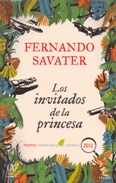 Las novedades de la biblioteca pueden ser consultadas en nuestro catálogo en línea, como es habitual.
Las novedades de la biblioteca pueden ser consultadas en nuestro catálogo en línea, como es habitual.
Para ello, seleccione ÚLTIMAS ADQUISICIONES y elija el período de tiempo que le interesa: ”el último mes” o “los últimos tres meses”.
Ésta es nuestra selección para los meses de julio y agosto de 2012.
The lastest additions to the library catalogue can be consulted on line as usual.
Click ÚLTIMAS ADQUISICIONES , then select “Dublin”, and choose the time period: “el último mes” or “los tres últimos
meses”.
This is our selection for July and August 2012.
Horario de verano en el Instituto Cervantes de Dublín / Summer opening hours at #ICervantes #Dublin
 Hoy decimos adiós al invierno también con nuestros horarios. El horario de verano comienza y con él también los nuevos cursos en el Instituto Cervantes.
Hoy decimos adiós al invierno también con nuestros horarios. El horario de verano comienza y con él también los nuevos cursos en el Instituto Cervantes.
Desde el 2 de julio hasta el 31 de agosto, tanto la recepción y administración como la biblioteca del centro abrirán con los siguientes horarios:
Lunes a jueves: 11h a 6.30h
Viernes : 9.30h a 14h
Recordad que los sábados el centro permanecerá cerrado desde el 30 de junio al 1 de septiembre (ambos inclusive). Mañana, por lo tanto, no abrimos. El primer sábado de apertura será el próximo 8 de septiembre.
Summer opening hours are starting today and at the same time, we are starting our new Summer courses. Now you have your last chance to enrol with us!
Please notice that the opening hours in the administration and in the library from 1st July to 31st August will be as follows:
Monday to Thursday: 11am-6.30pm
Friday: 9.30am-2pm
The Institute will remain closed on Saturdays from 30th June to 1st September (both inclusive). So tomorrow we are closes. We re-open on Saturdays next 8th September.
Enjoy your summer!
Comienzan los cursos de verano / Summer courses starting now. Last chance to enrol!
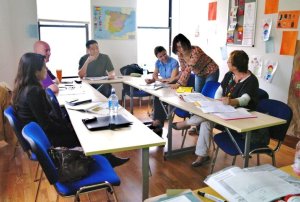 Los nuevos cursos de verano comienzan el lunes. Aún estás a tiempo de inscribirte.
Los nuevos cursos de verano comienzan el lunes. Aún estás a tiempo de inscribirte.
Estudiar español en nuestro Instituto no es sólo aprender el idioma, es también una experiencia para conocer y descubrir las diferentes culturas del mundo hispánico pues nuestros alumnos pueden participar en las actividades culturales que regularmente organiza el Instituto.
Asimismo, los alumnos también tienen acceso a nuestra biblioteca, que ofrece una amplia selección de literatura española y latinoamericana, películas, música, revistas y periódicos del mundo hispanohablante.
Hay cursos para todos los gustos y todos los niveles. Aquí tienes toda la información. ¡Te esperamos!
New Summer courses are starting in July. Now you have your last chance to enrol. Remember we are closed next Saturday.
Studying Spanish in our institute not only means learning the language but enjoying the opportunity of getting to know and discovering the different cultures within the Hispanic world. Each week our students will have the chance to participate in some of our cultural activities.
Students will also have access to our library, which offers a wide selection of Spanish and Latin American literature, as well as movies, music, magazines and newspapers from the Spanish-speaking world.
Advenimiento: Audiolibro de la semana / Audiobook of the week
¿Disfrutasteis del audiolibro de la semana pasada? ¿Os gustan las historias de terror? Pues con ellas seguimos, porque el audiolibro de esta semana también se adentra en el terreno de lo fantástico, el misterio y el horror. Si os da miedo la oscuridad, por favor, no descarguéis este audiolibro.
La historia: Advenimiento es un viaje al infierno… o quizás la salida de él. Adrián Montes es psicoantropólogo. Lo llaman para que se una al equipo que investiga un nuevo advenimiento: la aparición, en una vieja casa, de dos semiesferas ocupadas por un hombre y una mujer ¿Una aparición divina? ¿Una manifestación del maligno… o de algo peor?
Advenimiento es una historia de muerte más allá del amor.
El autor: Adolfo Camilo Díaz López es un escritor, dramaturgo y gestor cultural asturiano. Como escritor, destaca como autor de textos teatrales y de novelas cortas, y ha ganado algunos de los premios más prestigiosos de la literatura asturiana, como el Premio Xosefa de Xovellanos en dos ocasiones y el de novela corta de la Academia de la Lengua Asturiana. Obtuvo la licenciatura en Historia en la Universidad de Oviedo.
¿Did you enjoyed last week audiobook? Do you like scary stories? Good, because this week audiobook also delves into the realm of fantasy, mystery and horror. If you afraid of the dark, please do not download this file.
The story: Advenimiento is a journey to hell. Adrian Montes is psicoantropologist. He is asked to join the team investigating a new mistery: the appearance of two hemispheres occupied by a man and a woman in an old house. A divine apparition? A manifestation of evil … or something worse?
Advenimiento is a story of love beyond death.
The author: Adolfo Camilo Diaz Lopez is a writer, playwright and cultural manager from Asturias, Spain. As a writer, stands out as the author of dramatic texts and short stories, and has won some of the most prestigious awards of Asturian literature. He graduated in History at the University of Oviedo.
Ganadores del II Concurso de Mini Relatos “I Need Spain”
 Hoy 23 de junio, el Día del Español, celebramos la ceremonia de entrega de los premios de nuestro II concurso de mini-relatos Necesito España / I need Spain.
Hoy 23 de junio, el Día del Español, celebramos la ceremonia de entrega de los premios de nuestro II concurso de mini-relatos Necesito España / I need Spain.
Agradecemos a todos los participantes su entusiasmo, y no solo a los autores sino, muy especialmente, a sus escuelas y a los profesores que tan bien han sabido motivar a sus alumnos.
En total, recibimos más de 40 historias con la frase “Necesito España” o “I need Spain”. Finalmente, aquí están los ganadores:
1ª Categoría (de 7 a 11 años)
1er PREMIO: Aoife C. Colegio: Beaumont National School for Girls, Cork. Profesora: Ms. Fanning.
2º PREMIO: Laura C. Colegio: Beaumont National School for Girls, Cork. Profesora: Ms. Henning.
2ª Categoría (de 12 años en adelante)
1er PREMIO: Agnès Girod. Instituto Cervantes de Dublín. Profesora: Patricia García.
2º PREMIO: Julia Janiszewska. Instituto Cervantes de Dublín. Profesora: Patricia García.
Enhorabuena a los ganadores y gracias de nuevo a todos por participar.
Para leer todos los cuentos presentados, pulsa en la categoría II Short Story Competition a partir del lunes día 25 de junio.
¡Esperamos vuestra participación en 2013!
Muchas gracias, una vez más, a las entidades colaboradoras / patrocinadoras
Oficina de Turismo de España en Irlanda
Asesoría técnica de Educación de la Emb. de España
Dublín, 23 de junio de 2012
 |
 |
On Saturday 23rd June we celebrated the prize-giving ceremony of our II short story competition Necesito España / I need Spain.
We would like to thank all participants for their enthusiasm, and as well as the authors, we’d also like to send a special thanks to the schools and teachers who managed to motivate their pupils with such success.
In total, we received more than 40 stories containing the phrase “Necesito España”, or “I need Spain”. Without further ado, here are the winners:
1st Category (from 7 to 11 years old)
1st PRIZE: Aoife C. School: Beaumont National School for Girls, Cork.
2nd PRIZE: Laura C. School: Beaumont National School for Girls, Cork.
2nd Category (12 years old and over)
1st PRIZE: Agnès Girod. Instituto Cervantes.
2nd PRIZE: Julia Janiszewska. Instituto Cervantes.
Congratulations to the winners, and thank you again to all involved for your participation.
To read the stories entered in the competition, all you need to do is click the category “II Short Story Competition” from Monday, 25th of June.
We look forward to reading your stories in 2013!
Sincere thanks, once again, to our collaborators / sponsors:
Oficina de Turismo de España en Irlanda
Asesoría técnica de Educación de la Emb. de España
23rd June, 2012
El día E en la biblioteca / El Día E in the library
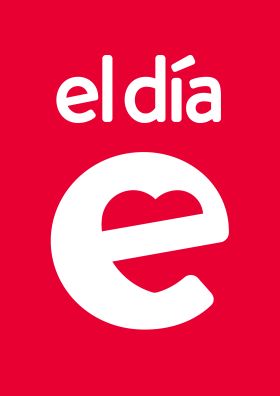 Quedan veinticuatro horas para que de comienzo El día E, la fiesta de todos los que hablamos español. Ese día, mañana, la biblioteca estará abierta en su horario habitual los sábados, de 9:30 a 14:00.
Quedan veinticuatro horas para que de comienzo El día E, la fiesta de todos los que hablamos español. Ese día, mañana, la biblioteca estará abierta en su horario habitual los sábados, de 9:30 a 14:00.
Sin embargo, a partir de las 15:30 volverá a abrir hasta las 17:00 con un bazar de libros en el que ofreceremos libros completamente nuevos a muy buenos precios. Todos ellos en español y, casi todos ellos, de literatura española e hispanoamericana. Puedes llevarte un libro por 5 euros o ¡3 libros por diez euros!
Además, a los que vengáis a la biblioteca entre las 15:30 y las 17:00 os ofreceremos el carné de la biblioteca completamente gratis por seis meses. ¡Solo a los que vengáis durante esa hora y media!
¿Y qué más? A lo largo del día, en nuestro café literario y en nuestra sala de exposiciones podrás disfrutar de un concurso de tortilla de patata, de la buena comida española y latinoamericana, de una fiesta latina, o de clases gratuitas de español y de tango. ¿Se nos olvida algo? Por si acaso, aquí tienes el programa completo.
Just Twenty-four hours left to ElDíaE, la fiesta de todos los que hablamos español. That day, tomorrow, the library will be open as usual on Saturdays from 9:30 to 14:00.
However, we will re-open at 15:30 until 17:00 with a market of books which offer brand new books at great prices. All of them in Spanish and almost all of them, Spanish and Latin American literature. You can take a book for 5 Euros or 3 books for ten euros!
In addition, for those who visit the library between 15:30 and 17:00 we will offer the library membership card free for six months. Only for those coming during that hour and a half!
And what else? Throughout the day, in our Café Literario and in our showroom, you can enjoy an Spanish omelette competition, good Spanish and Latin American food, a Latin fiesta, or free Spanish classes and tango workshop. Did we forget something? Just in case, here’s the whole programme..
El mundo de la traducción / The world of translation
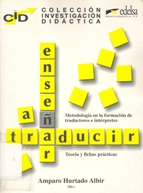 Traducir libros ha sido una labor casi paralela a los inicios de la literatura pero a pesar de eso, hasta hace relativamente poco, no se había creado un registro centralizado de obras traducidas.
Traducir libros ha sido una labor casi paralela a los inicios de la literatura pero a pesar de eso, hasta hace relativamente poco, no se había creado un registro centralizado de obras traducidas.
Con este objetivo, en 1932 se creó el Index Translationum, una iniciativa del Instituto Internacional de Cooperación Intelectual de la Sociedad de Naciones. Cuando comenzó, era tan solo un catálogo trimestral de libros traducidos en una quincena de países. La UNESCO retomó el proyecto tras la Segunda Guerra Mundial en la que es su iniciativa más longeva. Este año la institución celebra su ochenta cumpleaños. Por eso, durante este mes de junio, nuestro tema estrella es la traducción.
Translating books has been almost a parallel activity to writing since the beginning of literature but in spite of it, there was not a centralized register of translated books.
Index Translationum was created in 1932 to solve this matter. It was an initiative of the International Institute of Intellectual Cooperation of the United Nations. When it started, it was only a three-monthly catalogue of the books translated in fifteen countries.
Unesco took over the project after the Second World War, being its oldest initiative. This year the institution celebrates its eighty birthday. Because of that, during June, the library suggests you to take a look at our section about translation and translated books.
Audiolibro de la semana | Audiobook of the week: Bilis negra
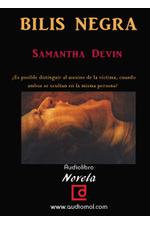 Para esta semana te proponemos una nueva novela en audio, una novela de misterio, perfecta para estos días de lluvia que insisten en acompañarnos. El título es Bilis negra, de la novelista Samantha Devin. Puedes descargarla ahora mismo y escucharla en cualquier reproductor de MP3. La tienes a un solo clic de distancia.
Para esta semana te proponemos una nueva novela en audio, una novela de misterio, perfecta para estos días de lluvia que insisten en acompañarnos. El título es Bilis negra, de la novelista Samantha Devin. Puedes descargarla ahora mismo y escucharla en cualquier reproductor de MP3. La tienes a un solo clic de distancia.
La historia: Simon Bughin sospecha que detrás del inesperado suicidio de su hermana se esconde una secta satánica. Sus investigaciones le llevan a Shimts, un pequeño pueblo del norte de Escocia.
Allí conoce a Max, un joven dibujante de cómics reservado y tímido, que ha llegado hasta ese apartado lugar porque su madre también se acaba de suicidar sin razón aparente. Los dos están alojados en el único hotel del pueblo, un antiguo castillo escocés regentado por una extravagante ninfómana.
Ambos buscan al mismo hombre: un prestigioso psiquiatra, amante de las ciencias ocultas, que parece ser responsable de ambas muertes. Simon y Max descubren que el pueblo y sus habitantes esconden un secreto que compromete su propia visión de la realidad.
The story: Simon Bughin suspects that there is a satanic cult behind her sister´s unexpected suicide. His research takes him to Shimts, a small village in the north of Scotland. There he meets Max, a young and shy cartoonist who has just arrived to that far away place because his mother has just commited suicide as well.
Both are staying at the only hotel in the village, an old Scottish castle run by an odd nymphomaniac. They are both looking for the same man: a prestigious psychiatrist, fan of the occult who seems to be responsible for both deaths. Simon and Mak find out that the village and its inhabitants hide a secret that compromises their own vision of reality.
The author: Samantha Devin is a Spanish writer living in London. She published several short stories in prestigious anthologies before publishing her first novel, Bilis negra (2004). She has cooperated with several media as London Magazine. Devin published her second novel in 2006, Arcadia which is a modern tragedy that confirms her talent as a horror writer.
Audiolibro de la semana / Audiobook of the week: La hora azul
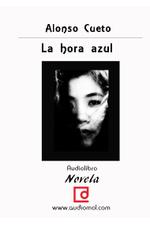 Una nueva novela en audio para un nuevo fin de semana que se presenta un tanto gris. Puedes descargarlo ahora mismo y escucharlo en cualquier reproductor de MP3. Ya sabes, si tu lengua nativa no es el español, esta es una buena forma de practicar y afinar el oído. Esta semana te proponemos la novela de Alonso Cueto titulada La hora azul. La tienes a un solo clic de distancia.
Una nueva novela en audio para un nuevo fin de semana que se presenta un tanto gris. Puedes descargarlo ahora mismo y escucharlo en cualquier reproductor de MP3. Ya sabes, si tu lengua nativa no es el español, esta es una buena forma de practicar y afinar el oído. Esta semana te proponemos la novela de Alonso Cueto titulada La hora azul. La tienes a un solo clic de distancia.
La hora azul cuenta la historia del doctor Adrián Ormache, un abogado próspero que vive en una zona acomodada de Lima. Tiene un buen sueldo, un trabajo estable y una familia encantadora. Al cuidado de su madre, su infancia también ha transcurrido sin problemas. Adrián sólo ha visto esporádicamente a su padre, de cuyas hazañas como oficial de la marina peruana ha oído hablar.
Tras su fallecimiento, Adrián descubre, sin embargo, que su padre estuvo a cargo de un cuartel en la zona de Ayacucho, durante la guerra de Sendero Luminoso. Gracias a ex subordinados suyos, se entera, además, de que ordenaba las sesiones de tortura y mandaba violar y ejecutar a las prisioneras. Pero en una ocasión su padre le perdonó la vida a una de ellas, que luego se escapó del cuartel. Adrián se propone conocerla.
Alonso Cueto Caballero nació el 30 de abril de 1954 en la ciudad de Lima (Perú). Debido al trabajo de su padre, pasó su infancia viviendo en Paris y Washington. A los siete años, volvió a vivir en Lima.
En 1977 se graduó en la facultad de literatura de la Universidad Católica del Perú con una tesis sobre la obra de Emilio Adolfo Westphalen. Ese mismo año, viajó a España con una beca del Instituto de Cultura Hispánica, para realizar un trabajo de investigación entorno a la obra de Luis Cernuda. En 1979 reinició sus estudios en la Universidad de Texas en Austin, de donde se graduó con el título de PhD, en 1984, con una tesis sobre los relatos de Juan Carlos Onetti. En 1985 se casa con Kristin Keenan Atwood con la cual tiene dos hijos, Daniel (1986) y Esteban (1991). Actualmente reside en Lima, Perú.
The Blue Hour tells the story of Dr. Adrian Ormache, a prosperous lawyer who lives in a wealthy area of Lima. He has a good salary, a stable job and a lovely family. His childhood has also gone smoothly, but Adrian has only sporadically seen his father, worked as a Peruvian naval officer.
After his death, Adrian discovers that his father was in charge of a barracks in the Ayacucho region, during the war of Sendero Luminoso. Thanks to former subordinates, he learns also that his father ordered the torture sessions and the rape and execution of the prisoners. But once his father spared one, a misterous woman that later escaped from the barracks. Adrian intends to meet her.
Alonso Cueto (Lima, 1954) is the author of several novels, short stories and essays. He recently published a study on Uruguayan writer Juan Carlos Onetti, El Soñador en la Penumbra (Fondo Cultural Económica, 2009). Cueto has won several distinctions for his literary work, including the prestigious Herralde Award (Spain 2005) for his novel La Hora Azul (The Blue Hour), the 2007 Casa de Ámericas-Planeta second-place prize for his novel Susurro de la Mujer Ballena (Sigh of the Whale Woman) and the Anna Seghers Prize for his body of work (Germany, 2000). He also received a John Simon Guggenheim Foundation grant in 2002.
Filmmaker Francisco Lombardi adapted Cueto’s novel Grandes Miradas (Knowing Gazes) to the screen in “Mariposa Negra,” which won several international awards. Cueto’s work has been translated into 15 languages, including Chinese and Korean. Random House recently bought the rights for the English-language translation of La Hora Azul. Cueto lives in Lima, Peru, where he teaches literature and writing workshops at the Universidad Católica.
Mario Vargas Llosa y Seamus Heaney en el Instituto Cervantes de Dublín / Mario Vargas Llosa and Seamus Heaney at the Instituto Cervantes in Dublin
El pasado lunes, antes del encuentro literario que tuvo lugar en el Instituto Cervantes de Dublín con Mario Vargas Llosa y Juan Cruz, dos grandes de la literatura, dos premios Nobel, se reunieron en la Biblioteca del Instituto Cervantes de Dublín.
En el video, Mario Vargas Llosa y Seamus Heaney intercambian comentarios sobre su obra y sobre su experiencia en Estocolmo, adonde viajaron para recibir el galardón de la academia sueca.
La velada literaria tuvo lugar a continuación de este encuentro, con motivo de la presentación en el Instituto Cervantes de Dublín de la traducción al inglés de El sueño del celta (The dream of the Celt), la última novela de Mario Vargas Llosa.
Mario Vargas Llosa, Premio Nobel de Literatura en 2010, Premio Cervantes en 1994 y Premio Príncipe de Asturias de las Letras en 1986, es uno de los más importantes novelistas y ensayistas contemporáneos. Nacido en Arequipa, Perú, en 1936, viajó a España en 1959 gracias a una beca para realizar un doctorado en la Universidad Complutense de Madrid.
Ese mismo año, vio la luz su primera publicación, Los jefes, un conjunto de cuentos que obtuvieron el premio Leopoldo Alas. Sin embargo, no sería hasta la década de 1960 cuando publicó tres de las obras que lo lanzaron a la fama: La ciudad y los perros (1962), La casa verde (1965) y Conversación en La Catedral (1969). En 2010, tras recibir el Premio Nobel, publicó El sueño del celta, en la que se cuenta la peripecia vital de un hombre de leyenda: el irlandés Roger Casement, uno de los primeros europeos en denunciar los horrores del colonialismo.
Last Monday, before the literary evening at the Instituto Cervantes in Dublin with Mario Vargas Llosa, and Juan Cruz , two literary great writers, two Nobel laureates, gathered at the Instituto Cervantes Library in Dublin.
In this video, Mario Vargas Llosa and Seamus Heaney exchange comments about their work and their experience in Stockholm, when they traveled there to receive the award from the Swedish Academy.
The literary evening ensued on the occasion of the presentation of the English translation of El sueño del celta (The dream of the Celt) at the Instituto Cervantes in Dublin.
The dream of the Celt is Mario Vargas Llosa’s latest novel, where he tells the life story of a legendary man: the Irish Roger Casement, one of the first Europeans to denounce the horrors of colonialism.
Mario Vargas Llosa, Nobel Prize in Literature 2010, Cervantes Award 1994, Príncipe de Asturias de las Letras Award 1986, is one of the most significant contemporary novelists and essayists.
Mario Vargas Llosa was born in 1936 in Arequipa (Peru). He travelled to Spain in 1959 thanks to a bursary to complete a doctorate at Complutense University in Madrid.
On the same year, he published his first work, Los jefes, a compilation of stories. It is not, however, until the 60´s when he published three of the works that launched him to fame: La ciudad y los perros in 1962, La casa verde in 1965 and Conversación en La Catedral in 1969.
Following a period of intense political activity, he returned to writing in 1993 with his book of memoirs El pez en el agua. In 2010, he published The dream of the celt.
Audiolibro de la semana / Audiobook of the week: La buena letra
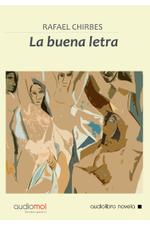 Parece que hasta el domingo no vamos a ver el sol, así que, ¿por qué no disfrutar del verano irlandés escuchando un buen libro en casa? En realidad, lo puedes oír en cualquier lado con tu MP3, en el autobús, en la bici, o corriendo por el parque cuando salga el sol. Si tu lengua nativa no es el español, también es una buena forma de practicarlo. Y lo mejor de todo es que lo tienes a un solo clic de distancia.
Parece que hasta el domingo no vamos a ver el sol, así que, ¿por qué no disfrutar del verano irlandés escuchando un buen libro en casa? En realidad, lo puedes oír en cualquier lado con tu MP3, en el autobús, en la bici, o corriendo por el parque cuando salga el sol. Si tu lengua nativa no es el español, también es una buena forma de practicarlo. Y lo mejor de todo es que lo tienes a un solo clic de distancia.
La buena letra cuenta la historia de Ana, que a su vez relata a su hijo fragmentos de una vida de pequeñas miserias con las que se han tejido las relaciones personales y familiares. No son grandes acontecimientos históricos los que nos narra su autor, Rafael Chirbes, sino hechos íntimos y cotidianos que suceden en las vidas de unos personajes heridos por la traición y la deslealtad
Rafael Chirbes nació en Tabernes de Valldigna, (Valencia), en 1949. A los 16 años se fue a vivir a Madrid, donde estudió Historia Moderna y Contemporánea. Vivió en Marruecos (donde fue profesor de español), París, Barcelona, La Coruña, Extremadura, y en el año 2000 regresó a Valencia.
Se dedicó a la crítica literaria durante algún tiempo y posteriormente a otras actividades periodísticas. Su primera novela, Mimoun (1988), quedó finalista del Premio Herralde y su obra La larga marcha (1996) fue galardonada en Alemania con el Premio SWR-Bestenliste. Con esta novela inició una trilogía sobre la sociedad española que abarca desde la posguerra hasta la transición, que se completa con La caída de Madrid (2000) y Los viejos amigos (2003). Con Crematorio (2007), un retrato de la especulación inmobiliaria, recibió el Premio Nacional de la Crítica y el V Premio Dulce Chacón. (Datos tomados de Wikipedia.org)
It seems we will not shee the sun until Sunday, so why not enjoy your Irish summer listening a good book at home? In fact, you can hear it anywhere with your MP3, on the bus, bike, or running through the park. If your native language is not Spanish, is also a good way to practice it. And best of all, you have only a click away.
La buena letra is the story of Ana, who tells her son fragments of a life of petty miseries with which they have woven the personal and family relationships. There are not big historical events in this fiction, but intimate and everyday events that happen in the lives of these characters wounded by betrayal and disloyalty.
Rafael Chirbes was born in Tabernes de Valldigna, (Valencia) in 1949. At age 16 he moved to Madrid, where he studied Modern and Contemporary History. He lived in Morocco (where he taught Spanish), Paris, Barcelona, A Coruña, Extremadura, and in 2000 he returned to Valencia. He devoted himself to literary criticism for some time and then to other journalistic activities.
His first novel, Mimoun (1988), was a finalist Herralde Prize and his novel La larga marcha (1996) was awarded in Germany. With this novel, he began a trilogy about Spanish society ranging from postwar to the transition, which is completed by La caída de Madrid (2000) and Viejos amigos (2003). With Crematorio (2007), a portrait of real estate speculation, received the Nacional de la Crítica Award and the 5th Dulce Chacón Award. (Data taken from Wikipedia.org)
Novedades en la biblioteca: junio 2012 / New to the library: June 2012
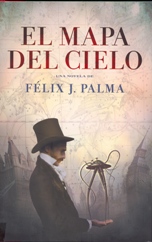 Las novedades de la biblioteca pueden ser consultadas en nuestro catálogo en línea, como es habitual.
Las novedades de la biblioteca pueden ser consultadas en nuestro catálogo en línea, como es habitual.
Para ello, seleccione ÚLTIMAS ADQUISICIONES y elija el período de tiempo que le interesa: ”el último mes” o “los últimos tres meses”.
Ésta es nuestra selección para el mes de junio de 2012.
The lastest additions to the library catalogue can be consulted on line as usual.
Click ÚLTIMAS ADQUISICIONES , then select “Dublin”, and choose the time period: “el último mes” or “los tres últimos meses”.
This is our selection for June 2012.
Encuentro Literario con Mario Vargas Llosa / Literary evening with Mario Vargas Llosa
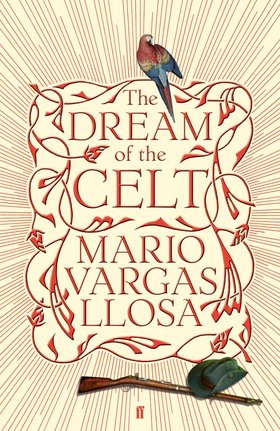 Premio Nobel de Literatura en 2010, Premio Cervantes en 1994, Premio Príncipe de Asturias de las Letras en 1986… éstos son tres ejemplos de los muchos reconocimientos que ha recibido a lo largo de su carrera como escritor Mario Vargas Llosa, uno de los más importantes novelistas y ensayistas contemporáneos. El Instituto Cervantes de Dublín se complace en invitarte a asistir a una conversación entre este magnífico escritor y Juan Cruz.
Premio Nobel de Literatura en 2010, Premio Cervantes en 1994, Premio Príncipe de Asturias de las Letras en 1986… éstos son tres ejemplos de los muchos reconocimientos que ha recibido a lo largo de su carrera como escritor Mario Vargas Llosa, uno de los más importantes novelistas y ensayistas contemporáneos. El Instituto Cervantes de Dublín se complace en invitarte a asistir a una conversación entre este magnífico escritor y Juan Cruz.
Mario Vargas Llosa, nuestro autor del mes de junio, nació en 1936 en Arequipa (Perú). En 1959 viajó a España gracias a una beca para hacer un doctorado en la Universidad Complutense de Madrid, donde obtuvo el título de Doctor en Filosofía y Letras.
Ese mismo año, vio la luz su primera publicación, Los jefes, un conjunto de cuentos que obtienen el Premio Leopoldo Alas. Sin embargo, no será hasta la década de 1960 cuando publique tres de las obras que lo lanzaron a la fama: La ciudad y los perros (1962), La casa verde (1965) y Conversación en La Catedral (1969).
En 2010, la editorial Alfaguara publica El sueño del celta, en la que se cuenta la peripecia vital de un hombre de leyenda: el irlandés Roger Casement, uno de los primeros europeos en denunciar los horrores del colonialismo. Esta novela, traducida al inglés, ha sido publicada por la editorial Faber and Faber a principios de junio de 2012 bajo el título The dream of the celt.
Mario Vargas Llosa conversará con Juan Cruz, periodista y escritor español que en la actualidad ocupa el cargo de adjunto a la dirección del diario El País. Su primera novela fue publicada en 1972 bajo el título Crónica de la nada hecha pedazos. Ha participado en radio y televisión y también en numerosas conferencias y cursos.
Para asistir a este encuentro es necesario presentar invitación. Para conseguirla, pregunta por favor al bibliotecario: bibdub@cervantes.es. ¡Pero date prisa, que se acaban!
Nobel Prize in Literature 2010, Cervantes Award 1994, Príncipe de Asturias de las Letras Award 1986… three examples of the many awards that Mario Vargas Llosa has received during his writing career. He is one of the most significant contemporary novelists and essayists. Instituto Cervantes Dublin is proud to invite you to a conversation with this outstanding author and the Spanish writer Juan Cruz.
Mario Vargas Llosa, our author of the month in june, was born in 1936 in Arequipa (Peru), travelled to Spain in 1959 thanks to a bursary to complete a doctorate by the Complutense University of Madrid where he was awarded a Doctorate in Philosopy and Literature.
On the same year, he published his first work, Los jefes (The leaders), a compilation of stories. He was awarded the Leopoldo Alas prize for this piece. It is not, however, until the 60´s when he published three of the works that launched him to fame: La ciudad y los Perros (The City and the Dogs) in 1962, La casa verde (The Green House) in 1965 and Conversación en La Catedral (Conversation in the Cathedral) in 1969.
Following a period of intense political activity, he returned to writing in 1993 with his book of memoirs El pez en el agua (A Fish in the Water).
Alfaguara publishing house launched El sueño del celta in 2010. This is Vargas Llosa’s latest novel where he tells the life story of a legendary man: the Irish Roger Casement, one of the first Europeans to denounce the horrors of colonialism. This novel has been translated into English and is due to be published by Faber and Faber at the beginning of June 2012 with the title The dream of the Celt.
Juan Cruz, Spanish journalist and writer, is Assistant Director at the Spanish newspaper El País. His first novel was published in 1972 with the title Crónica de la nada hecha pedazos. He has participated in radio, television and in numerous conferences and courses.
Please remember: Strictly by invitation. Ask the librarian for details: bibdub@cervantes.es
Audiolibro de la semana / Audiobook of the week: La isla de los amores infinitos
La isla de los amores infinitos. Esta novela, de tan sugerente título, es nuestra propuesta de audiolibro para esta semana. La tienes a un solo clic de distancia.
El libro cuenta la historia de tres familias de orígenes y culturas dispares que recalan en Cuba y cuyos destinos a lo largo de más de 150 años correrán parejos con los de la bella isla.
Desde el Miami actual, la historia retrocede hasta 1856, cuando entran en contacto los personajes, procedentes de China, España y África, y surge el amor, que hallará una mágica continuidad un siglo más tarde. Una hermosa historia de esperanzas y sueños rotos, de nostalgia, exilio y amores unidos por el destino.
Su autora, Daína Chaviano, nació en La Habana donde se licenció en Lengua y Literatura Inglesa. En 1979 recibió el Premio David de Ciencia Ficción por Los mundos que amo, una colección de cuentos escritos entre los 15 y los 19 años.
En 1982, la autora fundó el primer taller literario de ciencia ficción de América Latina. Más tarde, trabajó como guionista de programas televisivos para niños, jóvenes y adultos. Fue presentadora de televisión y de radio. También participó como actriz en algunas películas de cine independiente.
Mientras vivió en Cuba, publicó varias obras de ciencia ficción y fantasía. Entre sus títulos se encuentran Amoroso planeta (1983), Historias de hadas para adultos (1986), Fábulas de una abuela extraterrestre (1988), La anunciación (1990) y El abrevadero de los dinosaurios (1990).
En mayo de 1991, Chaviano se estableció en Miami, Florida (Estados Unidos), donde aún vive.
Fuera de Cuba ha publicado Confesiones eróticas y otros hechizos (poemas), País de dragones (cuentos) y el ciclo de novelas «La Habana oculta», compuesto por El hombre, la hembra y el hambre, Casa de juegos, Gata encerrada y La isla de los amores infinitos, publicada en 25 idiomas y que se ha convertido en la novela cubana más traducida de todos los tiempos.
La isla de los amores infinitos. This novel, with such a suggestive title, is the audiobook we suggest for this week. Just a click away from you.
The book tells the story of three families of diverse backgrounds and cultures that arrive to in Cuba and whose lifes along more than 150 years will run hand in hand with the history of this beautiful island.
From Miami today, history goes back to 1856 when the characters come into contact, from China, Spain and Africa, and love emerges then and a century later it finds a magic continuation. A beautiful story of hope and broken dreams, nostalgia, exile and love united by fate.
The author, Daína Chaviano, was born in Havana where he graduated in English Language and Literature. In 1979 she received the David Award for Science Fiction for her collection of stories, Los mundos que amo, written when she was a teenager.
In 1982, she founded the first science fiction writing workshop in Latin America. Later she worked as a scriptwriter for television programs for children, youth and adults. She also participated as an actress in several independent films.
While living in Cuba, Daína published several works of science fiction and fantasy. Among his titles are Amoroso planeta (1983), Historias de hadas para adultos (1986), Fábulas de una abuela extraterrestre (1988), La anunciación(1990) y El abrevadero de los dinosaurios (1990).
In May 1991, Chaviano moved to Miami, Florida (United States), where she still lives.
Since then, she has published outside of Cuba Confesiones eróticas y otros hechizos (poems), País de dragones (short stories) and the cycle of novels «La Habana oculta», composed by El hombre, la hembra y el hambre, Casa de juegos, Gata encerrada y La isla de los amores infinitos, published in 25 languages. This novel has become the most translated Cuban novel of all time.
